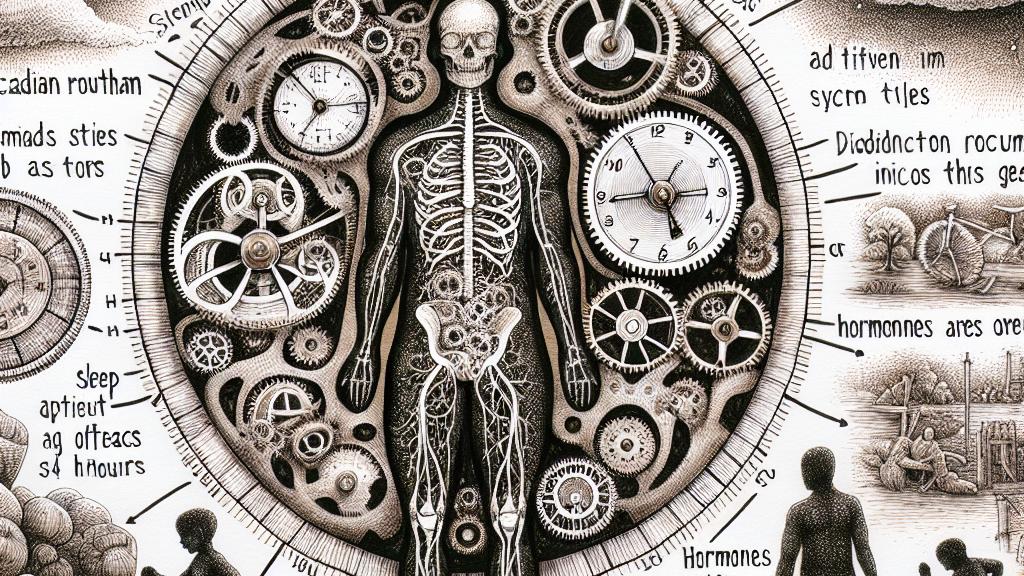Tick Tock: The Hidden Science of Our Body Clock and Its Impact on Health!
Overview
- The body clock is crucial for regulating essential bodily functions.
- It impacts our mood, metabolism, and susceptibility to diseases.
- Adjusting daily habits can optimize our circadian rhythms and improve health.

Understanding the Body Clock
The body clock, or circadian rhythm, is an intrinsic mechanism that regulates various biological processes in approximately a 24-hour cycle. It governs crucial functions such as hormone release, sleep-wake cycles, and metabolic processes. For example, hormonal fluctuations throughout the day influence when we feel alert versus tired. Studies indicate that people tend to perform better in physical tasks when they time their workouts for the early evening. However, when our body clock is disrupted, whether from irregular sleep patterns or inconsistent meal times, it can lead to adverse health outcomes, including obesity, diabetes, and increased risks of certain cancers. By understanding and respecting this natural rhythm, we can make lifestyle choices that support our health and well-being.
The Science Behind the Body Clock
Our body clock operates through biological feedback systems primarily influenced by light exposure. Located in the suprachiasmatic nucleus (SCN) of the brain, this central clock interprets light signals received through the eyes. For instance, daylight helps synchronize our biological clock by promoting the release of cortisol, a hormone that promotes alertness. In contrast, as night falls and darkness sets in, melatonin is released to signal the body to prepare for sleep. Interestingly, everyone has slightly different circadian rhythms—some people might have a clock that runs a bit longer or shorter than 24 hours. This biological variation can lead to sleep disturbances, fatigue, and challenges in maintaining daily routines, especially for those who work irregular hours or travel frequently. Recognizing and adapting to our unique body clock is vital for optimizing health.
Tips for Synchronizing Your Body Clock Effectively
To enhance the functioning of your body clock, establishing a consistent daily routine is essential. This includes going to bed and waking up at the same time every day, even on weekends. Morning exposure to natural light is paramount; aim to spend at least 20-30 minutes outdoors or near windows after waking. Limiting artificial light exposure, particularly blue light from screens, an hour before bed can significantly improve sleep quality. For those with demanding work schedules, incorporating short naps during the day can help alleviate fatigue. Meal timing is also important; try to eat meals at the same times each day, as this further reinforces your body's internal rhythm. Adopting these practices can help optimize your body clock, leading to better physical health, improved mood, and heightened energy levels.

Loading...